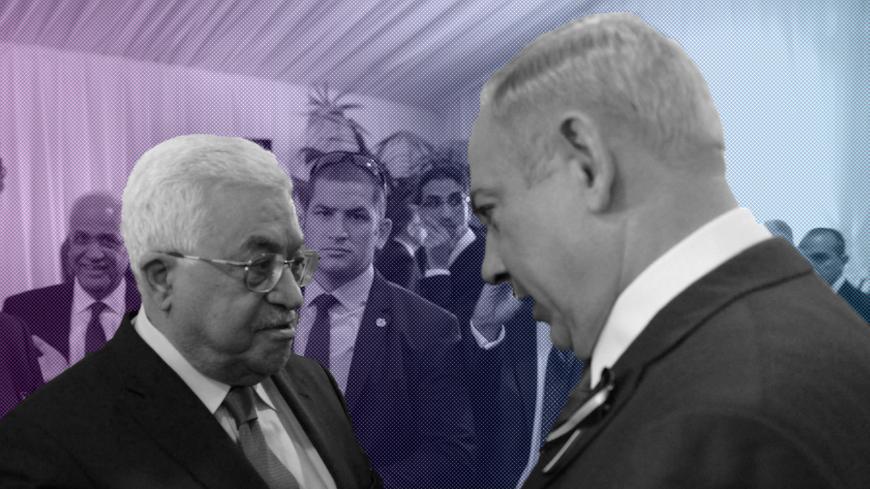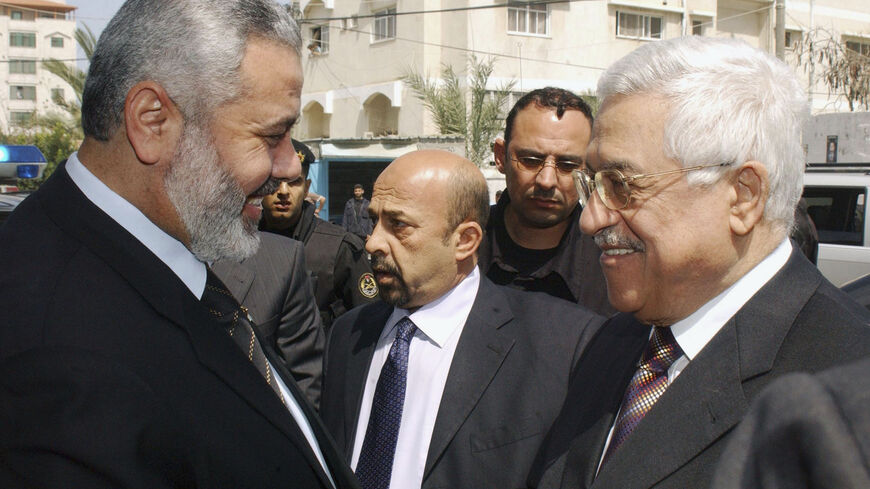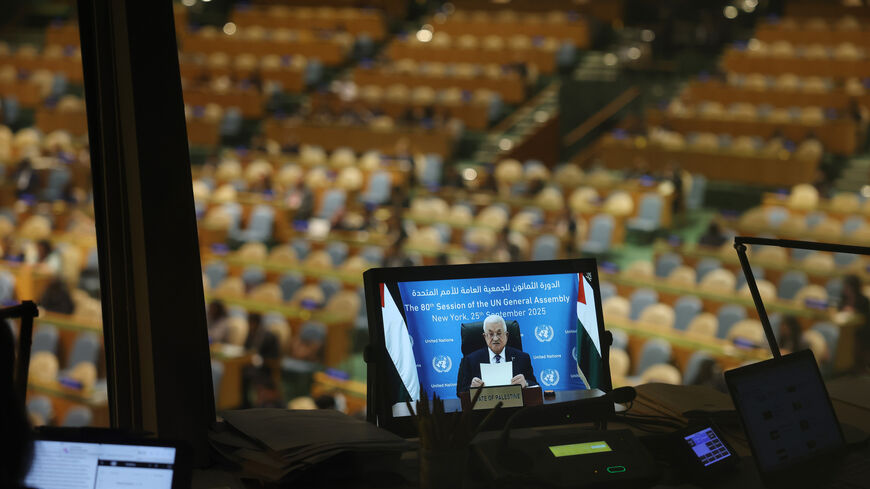Despite rejection of Trump's Gaza plan, Hamas and PA at odds over postwar control
The prospects of the authority taking control of Gaza appear dim as Hamas moves to reassert its control over the population.

The Palestinian Authority and Hamas are united in their opposition to President Donald Trump's Gaza displacement plan, but the two rivals remain at loggerheads over the future of postwar Gaza.
Despite the troubled history between the PA's leadership and Trump, many of them maintain some hope of being able to work with the new US administration. After Trump's inauguration, PA President Mahmoud Abbas sent a congratulatory letter and expressed his readiness to work with him toward peace. Even Hamas acknowledged that the ceasefire in Gaza would not have taken place if it were not for Trump’s pressure.
Nonetheless, any initial Palestinian optimism began to dissipate after Trump’s surprising statement that Palestinians “should move from Gaza” and that the United States should "buy" and develop the enclave. The PA swiftly drummed up regional and international support against the plan, and Hamas issued a strong statement condemning Trump's remarks as “complicit with the occupation.”
Yet, despite Trump's plan posing a shared challenge, the PA and Hamas are drifting further apart, making any potential reconciliation or show of unity between them increasingly unlikely.
Prospects for Palestinian reconciliation dim
Amid the war in Gaza over the past 16 months, a number of attempts were made to bridge the gap between Hamas and the Ramallah-based PA. Algeria, Russia and Egypt, among others, tried to help them reach an agreement on governing Gaza after the war with Israel, yet each attempt resulted in no more than symbolic statements. The failure to yield a positive result stems from two reasons: The PA's refusal to give Hamas a role in a postwar government in Gaza and Hamas' refusal to disarm its military wing and give the PA full security control of the territory.
The PA understands that a unity government that includes Hamas, deemed a terrorist organization by the United States and the European Union, would lack international legitimacy, especially after Hamas' attack on Israel on Oct. 7, 2023. On the other hand, although Hamas has agreed at times to let the PA take control of Gaza, it has always insisted on the right to retain its weapons — a nonstarter for Abbas.
The octogenarian Abbas has criticized this compromise as the Lebanese-Hezbollah model, in which the Iranian-backed movement functioned as a state within the state, challenging official authority and fielding its own, more powerful fighting force.
At this point, the PA’s demand for full control appears impossible to meet. Despite the unprecedented destruction in Gaza, Hamas has reasserted its power there since the Jan. 19 ceasefire went into effect and is quickly reconsolidating its grip over the population.
Municipalities have resumed collecting taxes from merchants and taxing all goods that enter the enclave. Hamas security forces are harshly reasserting their authority, using such brutal practices as publicly shooting people in the legs when they are suspected of stealing.
In addition, Hamas seized on a handover of Israeli hostages to send a message to the world — as well as the PA and the Israeli government — that it is here to stay. At a makeshift ceremony on Feb. 8 for the release of three Israelis, Hamas flew a banner that read “We are the day after.”
The PA’s competing vision would have Gaza united with the West Bank under one governing authority, which it steers, but its leaders understand that they cannot regain control of the enclave without the explicit support of the United States.
According to the most recent survey by the Palestinian Center for Policy and Survey, published in September 2024, 42% of Palestinians in Gaza and only 17% of those in the West Bank backed the PA. The leadership in Ramallah knows that only the Trump administration can exert pressure on the Israeli government, which has consistently said it will not accept PA involvement in postwar Gaza. Israeli Prime Minister Benjamin Netanyahu has previously accused the PA of inciting Palestinians to violence against Israelis, while some analysts say that he has long sought to maintain separate administration of the West Bank and Gaza, maintaining a wedge between the PA and Hamas.
In December, the PA launched a sweeping security operation in Jenin, targeting militant groups in the sprawling refugee camp, that some analysts said was meant to send a signal to the incoming Trump administration to show itself willing and capable of maintaining security control in Gaza.
The Middle East Eye reported last month that at a Jan. 28 meeting in Riyadh, Hussein Al-Sheikh, secretary-general of the Palestine Liberation Organization's Executive Committee, told Trump Middle East envoy Steve Witkoff that the PA is willing to confront Hamas militarily if it proves necessary to wrest control of Gaza.
Meanwhile, in perhaps another overture to the Trump administration, Abbas signed a decree on Feb. 10 ending payments to the families of Palestinians who attack Israelis and sometimes to the militants themselves. Trump in his first term in office signed the Taylor Force Act, which prohibited economic aid to the authority over the payments. His current Trump administration praised the PA for ending the payments.
The PA leadership remains concerned that Trump’s remarks are paving the way toward ethnic cleansing of the Palestinians in Gaza, particularly after he doubled down on the transfer plan this week, during a meeting in the Oval Office with Jordan's King Abdullah II. Regardless, the PA has demonstrated its continued willingness to engage with the White House. Perhaps Abbas recognizes that his policy of boycotting the first Trump administration after it moved the US Embassy to Jerusalem proved to be counterproductive.
Despite Abbas’ best efforts, things do not look promising for the PA. Still, its leaders continue to engage in shuttle diplomacy throughout the region in the hope of proving to Trump that the PA is indispensable, both as the current government in the West Bank and as the only viable option for Gaza.








